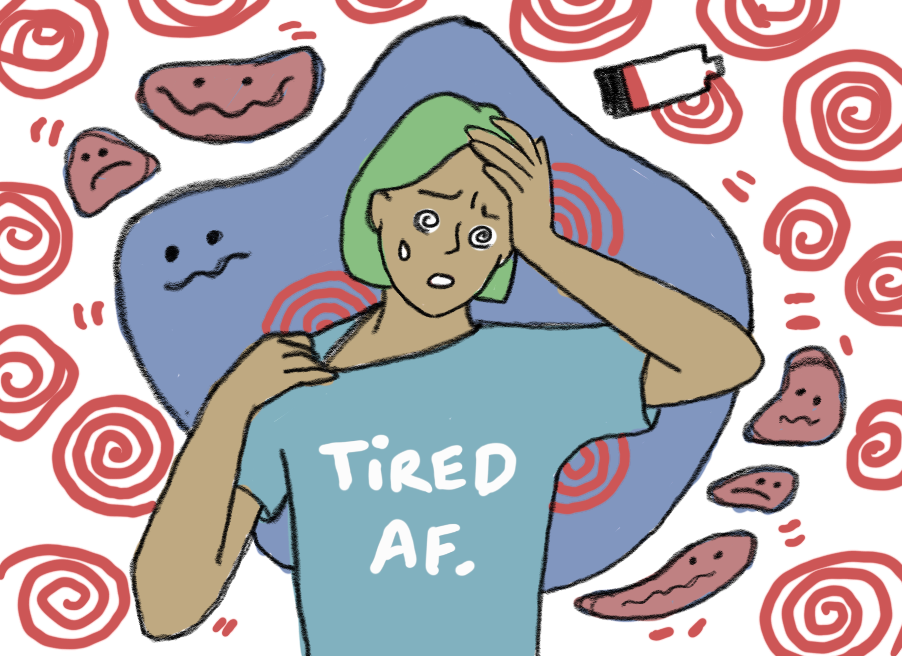
Exhausted
In the dim of exhaustion, each day can feel like an unnecessary climb, burdened by the weight of physical and emotional fatigue. When caught in the web of exhaustion, life loses its vibrancy, and the simplest tasks become challenges. Acknowledging the presence of exhaustion is the initial step towards healing, recognizing that fatigue is not a sign of weakness but a signal that our mind and body require attention and care. The road to recovery may seem daunting at times, but it is a crucial journey toward reclaiming a sense of vitality and purpose.
Exhaustion, whether physical, emotional, or a combination of both, can significantly impact one's overall well-being. It is often more than just feeling tired; it permeates into various aspects of life, affecting motivation, concentration, and the ability to engage in daily activities. Understanding the nuances of exhaustion requires a comprehensive exploration of its intricacies, acknowledging that it is a complex interplay of physical, psychological, and environmental factors.
Seeking support becomes imperative in navigating the depths of exhaustion. Therapy can be a valuable ally in this journey, providing a safe and non-judgmental space for individuals to unravel the underlying causes of their fatigue. Therapists accentuate on the fact that exhaustion is a multifaceted experience and approach it with empathy and sensitivity. The therapeutic process involves delving into the individual's unique circumstances, exploring potential stressors, lifestyle factors, and emotional contributors to fatigue.
Rather than offering a quick fix, the path to renewed energy is often a gradual process of self-discovery. Therapists work collaboratively with clients to identify patterns, triggers, and underlying issues contributing to exhaustion. This may involve exploring the impact of work-related stress, unresolved emotional issues, or unhealthy lifestyle habits. Through this process, individuals can gain a deeper understanding of their fatigue and develop strategies for overcoming it.
In the journey to overcome exhaustion, each person's experience is unique, especially at Another Light Counselling, there is a commitment to fostering an environment of understanding and support. Therapists guide clients through the intricate process of self-discovery, recognizing that exhaustion is not a one-size-fits-all experience. The goal is to provide personal support, acknowledging the unique circumstances and challenges that contribute to each person's fatigue.
Through empathetic listening and tailored therapeutic approaches, individuals can regain a sense of vitality. Therapists may incorporate techniques like stress management strategies and mindfulness practices to help clients navigate and overcome exhaustion. The focus is on empowering individuals with practical tools to manage stress, improve sleep quality, and foster a healthier lifestyle.
By acknowledging and addressing exhaustion, individuals can embark on a transformative path towards rejuvenation, finding untapped strength within themselves that they may not have realized existed. It's about more than just overcoming fatigue; it's reclaiming a vibrant and purposeful life. Therapists highlight the importance of self-care and self-compassion in this journey. This involves exploring activities and practices that bring joy, relaxation, and fulfillment, contributing to an overall sense of well-being.
Exhaustion is a complex and multifaceted experience that can significantly impact one's life. Acknowledging its presence is the first step towards healing, recognizing that fatigue is a signal that the mind and body require attention and care. Seeking support, particularly through therapy, becomes crucial in navigating the intricacies of exhaustion. Therapists at Another Light Counselling approach exhaustion with empathy, guiding clients through a process of self-discovery to identify and address underlying causes. The goal is not just to overcome fatigue but to reclaim a vibrant and purposeful life through self-care, and fostering a deeper understanding of one's unique circumstances.
